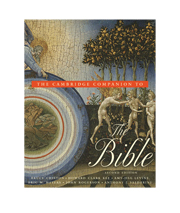Editor's Foreword
Published online by Cambridge University Press: 28 May 2012
Summary
Contributions from Cambridge University Press have stood out for several decades among introductions to the Bible and works of biblical reference. In The Cambridge Companion to the Bible, serious students as well as general readers have enjoyed access to critical discussion of the Scriptures with appropriate reference to the secondary literature. In terms of judicious balance, theological sensitivity, and historical accuracy, the Press has set the standard within this sector of publishing.
This second edition revises and updates the brilliant investigations developed in the first edition of key historical and exegetical issues within the study of the Bible. Two principles have been applied consistently to the task of revision.
The first principle involves understanding the social histories of Israel and the early Church as they shaped the biblical texts. This approach identifies the constituencies for which the sources of the texts were produced. By “sources” we do not mean the documents as they stand (Genesis, Exodus, Leviticus, and so on), but rather the traditions that fed into those documents. The final, editorial moment when traditions were crystallized in writing is a vital juncture in the literary formation of the Scriptures but is not solely determinative of their meaning. The unfolding of meanings within texts during the whole of their development explodes the claim of a single, exclusive meaning in biblical exegesis.
- Type
- Chapter
- Information
- The Cambridge Companion to the Bible , pp. ix - xPublisher: Cambridge University PressPrint publication year: 2007

